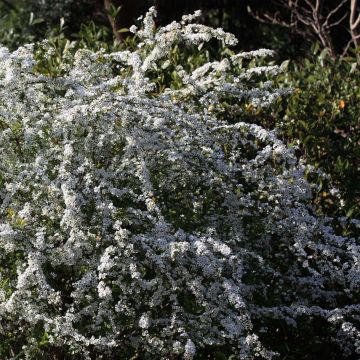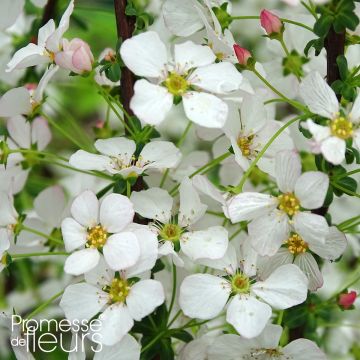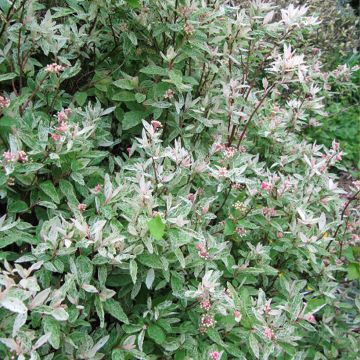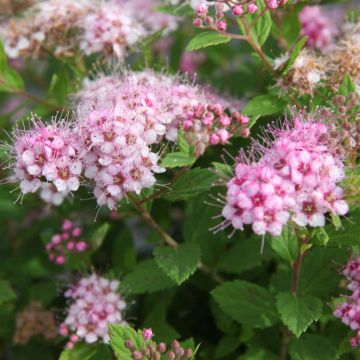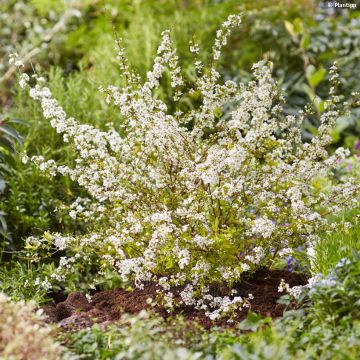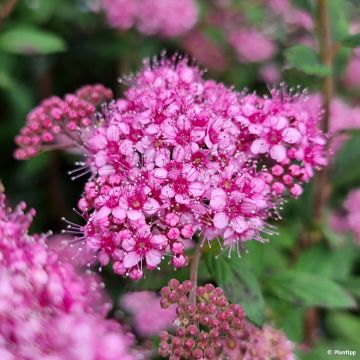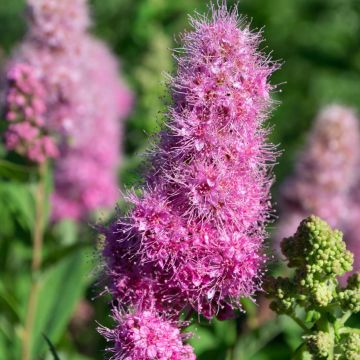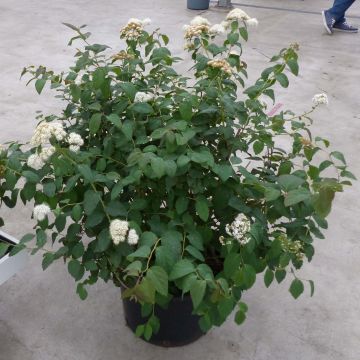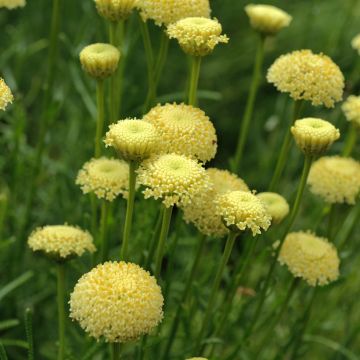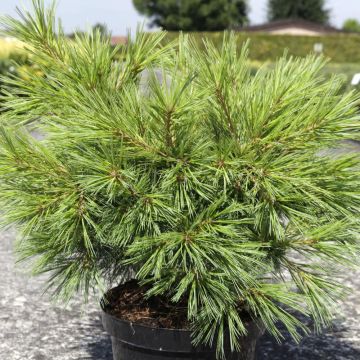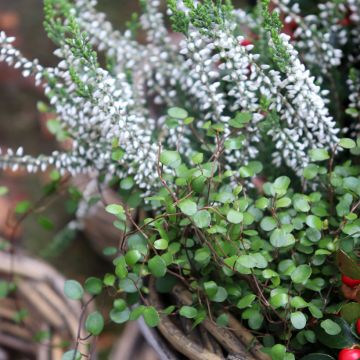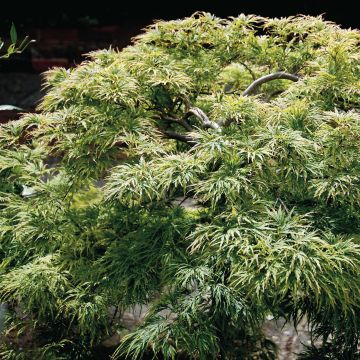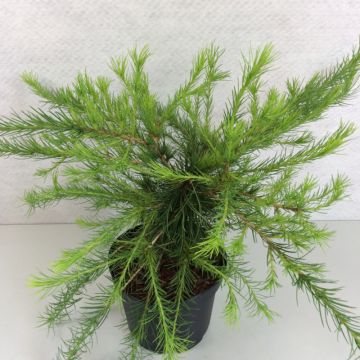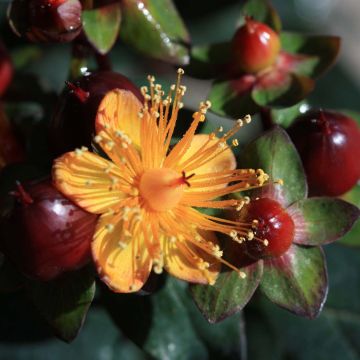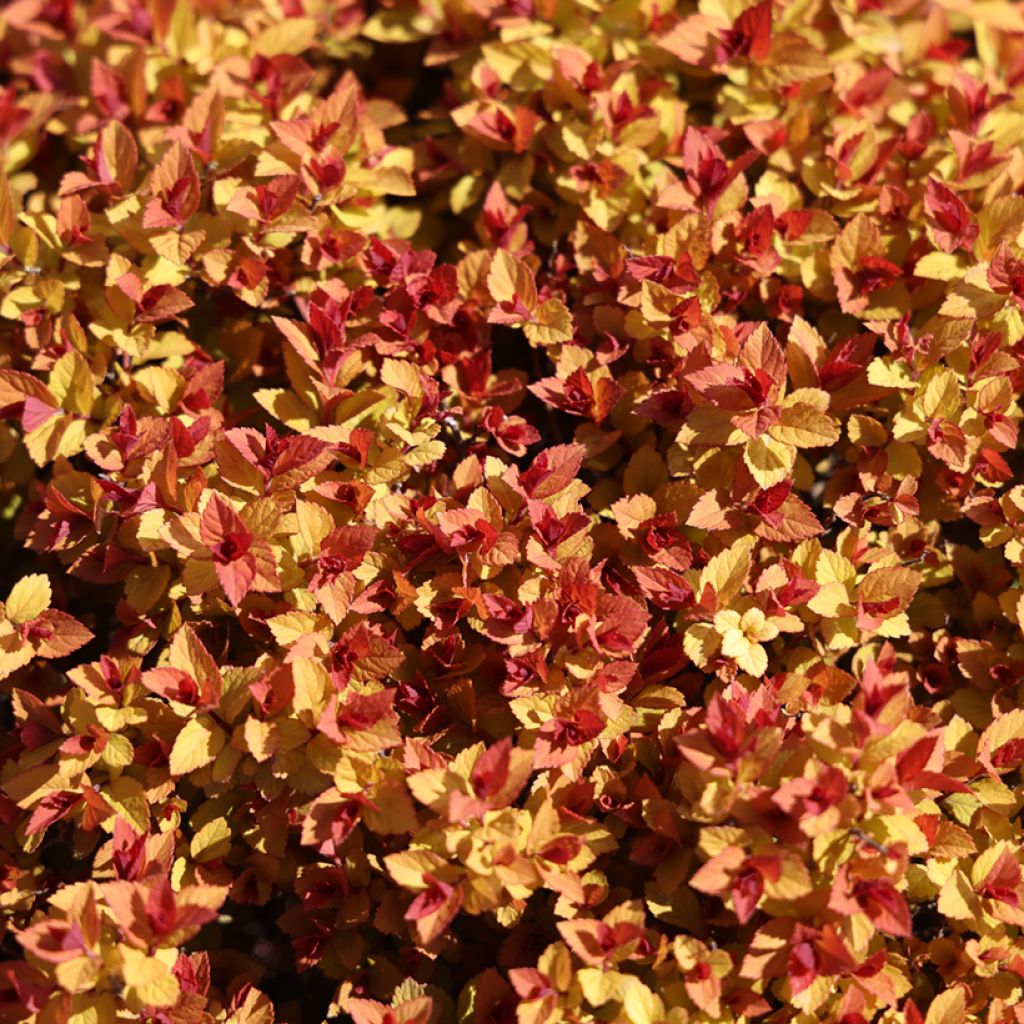

Spiraea japonica Merlo Gold - Japanese Spirea
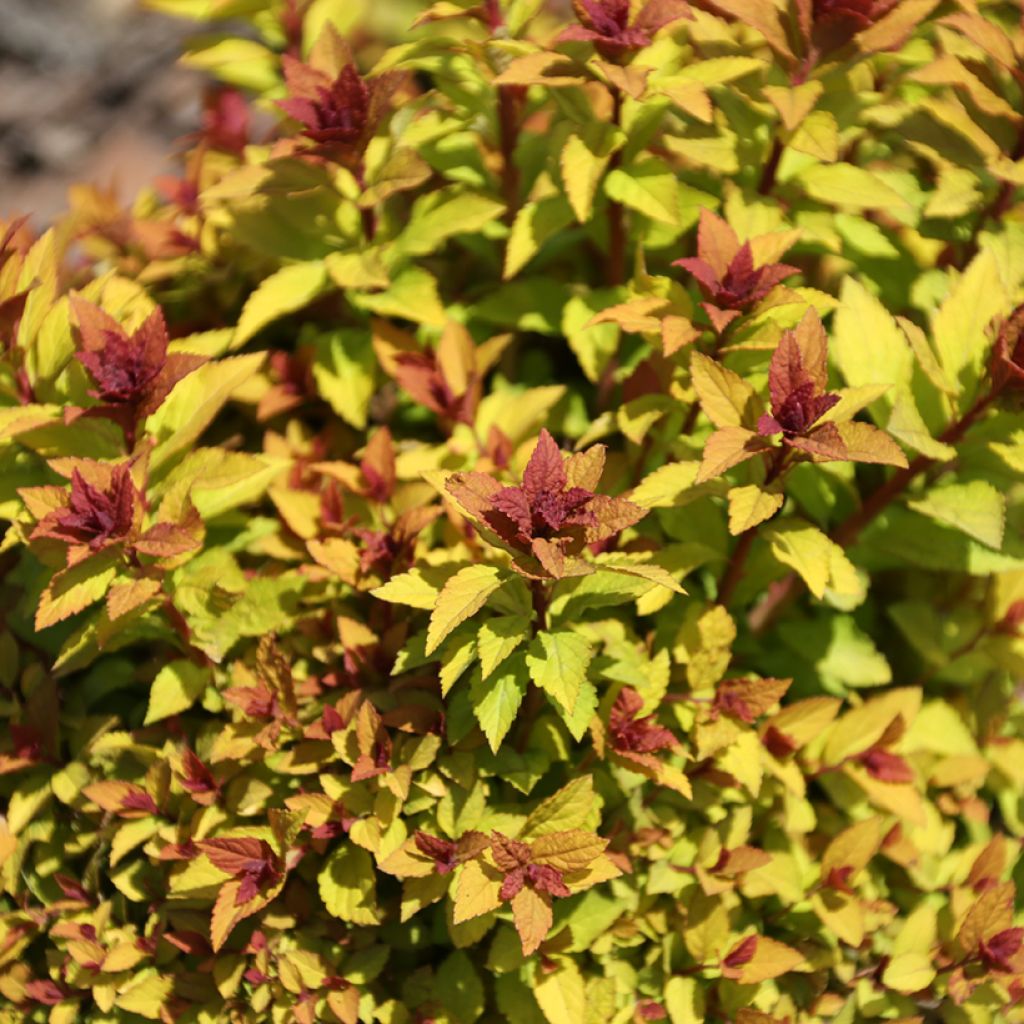

Spiraea japonica Merlo Gold - Japanese Spirea
Spiraea japonica Merlo Gold - Japanese Spirea
Spiraea japonica 'Davcop04' MERLO® GOLD ( MERLO® series )
Japanese Spirea, Japanese Meadowsweet
Special offer!
Receive a €20 voucher for any order over €90 (excluding delivery costs, credit notes, and plastic-free options)!
1- Add your favorite plants to your cart.
2- Once you have reached €90, confirm your order (you can even choose the delivery date!).
3- As soon as your order is shipped, you will receive an email containing your voucher code, valid for 3 months (90 days).
Your voucher is unique and can only be used once, for any order with a minimum value of €20, excluding delivery costs.
Can be combined with other current offers, non-divisible and non-refundable.
Home or relay delivery (depending on size and destination)
Schedule delivery date,
and select date in basket
This plant carries a 24 months recovery warranty
More information
We guarantee the quality of our plants for a full growing cycle, and will replace at our expense any plant that fails to recover under normal climatic and planting conditions.
Would this plant suit my garden?
Set up your Plantfit profile →
Description
Spiraea japonica 'Merlo Gold' is a variety of Japanese spiraea with a truly compact habit, forming a very ornamental spreading cushion. Its foliage combines the red of the young shoots, gold as they grow, turning yellow in summer. When autumn arrives, it takes on an orange-red hue before the leaves fall. Its summer, its pink flowering is also attractive and valuable during this season when many bushes no longer bloom. A dwarf variety that is equally interesting in the ground or in a pot on a terrace or balcony.
Spiraea is a member of the large botanical family of Rosaceae, which includes most temperate climate fruit trees (apple trees, plum trees, apricot trees...), numerous ornamental plants (Cotoneaster, Rose of course, Photinia...) as well as many wild plants that populate the countryside (wild strawberry, burnet...).
The Spiraea genus (from the Greek speira, meaning "spiral") is rich in around a hundred species native to the temperate regions of the northern hemisphere: North America (up to Mexico), East Asia up to the Himalayas, but quite rare in Europe in a natural state. The Japanese spiraea comes from Japan, China, and Korea, where it grows in wet to moist soils, in full sun, reaching nearly 2 m in height.
Merlo Gold (Davcop04) is a horticultural variety obtained in Anjou by the breeder Jean-Paul Davasse. This shrub is attractive in more ways than one, especially for small gardens. Of medium growth, it forms a cushion approximately 30 cm high and 60 cm wide, perfectly tolerating pruning, and can therefore be very easily cultivated in a decorative pot to enhance a terrace. Its compact habit and dense foliage will also allow it to be planted at the edge of a bed, or in a border, or even within an English mixed border, alongside perennial plants. The fine shoots are adorned with small elliptical and pointed leaves, with finely toothed edges. The young shoots emerge in spring in red tones that give a flamboyant appearance to the shrub, before turning to gold, then yellow throughout the summer. Depending on the climatic conditions, if it is not too hot or too dry, the plant can continue to produce new shoots, whose red will contrast nicely with the yellow foliage. In autumn, the foliage takes on a superb orange-red colour to beautifully conclude the season, before the leaves fall and winter arrives.
Between June and August, depending on the region, this dwarf spiraea celebrates summer by offering a beautiful pink flowering, in the form of corymbs about 5 cm in diameter, well highlighted by the yellow foliage.
Combining excellent cold resistance, ease of cultivation, and compact size, Spiraea 'Merlo Gold' is an excellent choice for small gardens, brightening up borders with its colourful and luminous foliage. You can easily create contrasts in shape, size, foliage colours, and flowers by pairing it with other equally accommodating plants. Thus, Weigela florida 'Ebony and Ivory' with its upright habit and purple-green foliage will be an ideal companion, both in the garden and on the terrace, as you can also cultivate it in a container. Its white spring flowers are beautifully complemented by its dark foliage. In the background, a plant of Philadelphus 'Belle Etoile', a famous nearly century-old Mock Orange variety, will create a calming green backdrop while its fragrant white flowering will connect the two other shrubs. To enjoy even more flowers, make room for a beautiful shrub rose in your border, which will offer you stunning bouquets to decorate and fragrance your home.
Report an error about the product description
Plant habit
Flowering
Foliage
Botanical data
Spiraea
japonica
'Davcop04' MERLO® GOLD ( MERLO® series )
Rosaceae
Japanese Spirea, Japanese Meadowsweet
Cultivar or hybrid
Other Spiraea
View all →Planting and care
Plant the Japanese Spiraea 'Marlo Gold' in any soil that is not too dry, preferably fertile, well-drained, and in full sun. The presence of lime, in moderation, is well tolerated, as is light shading. Water thoroughly during the first year to ensure the young plant establishes its roots properly, then provide additional water during dry spells. Prune in March to 15 cm above the soil: late winter pruning is essential for achieving a beautiful flowering. Spiraea japonica are perpetual plants; to encourage a second flowering, lightly prune the plant or remove faded flowers to promote a resurgence in late summer or early autumn. This plant flowers on the current year's shoots. To maintain the vigour of the young plant, it is also important to remove some old stems at the base in spring. Apply a complete fertiliser in March. Space the plants 60 cm apart at planting, preferably in autumn and winter.
Planting period
Intended location
Care
This item has not been reviewed yet - be the first to leave a review about it.
Similar products
Haven't found what you were looking for?
Hardiness is the lowest winter temperature a plant can endure without suffering serious damage or even dying. However, hardiness is affected by location (a sheltered area, such as a patio), protection (winter cover) and soil type (hardiness is improved by well-drained soil).

Photo Sharing Terms & Conditions
In order to encourage gardeners to interact and share their experiences, Promesse de fleurs offers various media enabling content to be uploaded onto its Site - in particular via the ‘Photo sharing’ module.
The User agrees to refrain from:
- Posting any content that is illegal, prejudicial, insulting, racist, inciteful to hatred, revisionist, contrary to public decency, that infringes on privacy or on the privacy rights of third parties, in particular the publicity rights of persons and goods, intellectual property rights, or the right to privacy.
- Submitting content on behalf of a third party;
- Impersonate the identity of a third party and/or publish any personal information about a third party;
In general, the User undertakes to refrain from any unethical behaviour.
All Content (in particular text, comments, files, images, photos, videos, creative works, etc.), which may be subject to property or intellectual property rights, image or other private rights, shall remain the property of the User, subject to the limited rights granted by the terms of the licence granted by Promesse de fleurs as stated below. Users are at liberty to publish or not to publish such Content on the Site, notably via the ‘Photo Sharing’ facility, and accept that this Content shall be made public and freely accessible, notably on the Internet.
Users further acknowledge, undertake to have ,and guarantee that they hold all necessary rights and permissions to publish such material on the Site, in particular with regard to the legislation in force pertaining to any privacy, property, intellectual property, image, or contractual rights, or rights of any other nature. By publishing such Content on the Site, Users acknowledge accepting full liability as publishers of the Content within the meaning of the law, and grant Promesse de fleurs, free of charge, an inclusive, worldwide licence for the said Content for the entire duration of its publication, including all reproduction, representation, up/downloading, displaying, performing, transmission, and storage rights.
Users also grant permission for their name to be linked to the Content and accept that this link may not always be made available.
By engaging in posting material, Users consent to their Content becoming automatically accessible on the Internet, in particular on other sites and/or blogs and/or web pages of the Promesse de fleurs site, including in particular social pages and the Promesse de fleurs catalogue.
Users may secure the removal of entrusted content free of charge by issuing a simple request via our contact form.
The flowering period indicated on our website applies to countries and regions located in USDA zone 8 (France, the United Kingdom, Ireland, the Netherlands, etc.)
It will vary according to where you live:
- In zones 9 to 10 (Italy, Spain, Greece, etc.), flowering will occur about 2 to 4 weeks earlier.
- In zones 6 to 7 (Germany, Poland, Slovenia, and lower mountainous regions), flowering will be delayed by 2 to 3 weeks.
- In zone 5 (Central Europe, Scandinavia), blooming will be delayed by 3 to 5 weeks.
In temperate climates, pruning of spring-flowering shrubs (forsythia, spireas, etc.) should be done just after flowering.
Pruning of summer-flowering shrubs (Indian Lilac, Perovskia, etc.) can be done in winter or spring.
In cold regions as well as with frost-sensitive plants, avoid pruning too early when severe frosts may still occur.
The planting period indicated on our website applies to countries and regions located in USDA zone 8 (France, United Kingdom, Ireland, Netherlands).
It will vary according to where you live:
- In Mediterranean zones (Marseille, Madrid, Milan, etc.), autumn and winter are the best planting periods.
- In continental zones (Strasbourg, Munich, Vienna, etc.), delay planting by 2 to 3 weeks in spring and bring it forward by 2 to 4 weeks in autumn.
- In mountainous regions (the Alps, Pyrenees, Carpathians, etc.), it is best to plant in late spring (May-June) or late summer (August-September).
The harvesting period indicated on our website applies to countries and regions in USDA zone 8 (France, England, Ireland, the Netherlands).
In colder areas (Scandinavia, Poland, Austria...) fruit and vegetable harvests are likely to be delayed by 3-4 weeks.
In warmer areas (Italy, Spain, Greece, etc.), harvesting will probably take place earlier, depending on weather conditions.
The sowing periods indicated on our website apply to countries and regions within USDA Zone 8 (France, UK, Ireland, Netherlands).
In colder areas (Scandinavia, Poland, Austria...), delay any outdoor sowing by 3-4 weeks, or sow under glass.
In warmer climes (Italy, Spain, Greece, etc.), bring outdoor sowing forward by a few weeks.






























